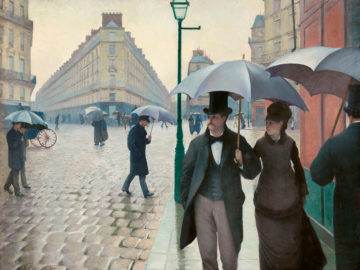Justin Smith-Ruiu in The New Statesman:

France is nice enough, I suppose, though I must acknowledge that this country, where I have lived for the past ten years, is mostly wasted on me. When it comes to both haute couture and to haute cuisine, I seem to have a lobe of my brain missing: I don’t even detect the virtues of the cultural products that draw so many foreigners to this place, let alone share in the appreciation of them. I don’t drink alcohol (so, no red wine, no “p’tit calva” for my “digestion”), I don’t eat meat (no charcuterie or steak tartare), I avoid empty carbs (no baguette or patisseries). Even when the ingredients suit my exigent diet, I still really do not enjoy wiling away the hours in a commensal spirit. My life in Paris often seems like a constant struggle to avoid getting trapped in one of those interminable lunches to which the people I know here seem happy to sacrifice such a great portion of their days. I’ve just got too much to do, and am perfectly content with the raw carrots and almonds in my backpack.
I fear I see myself in the memorable character of the Unitarian minister in Henry James’s The American (1877), whose church has paid for his trip through Europe to see the great art museums, and who loves these dearly. The problem is that the minister also has a special diet: he can only eat graham crackers and hominy, “A regimen to which he was so much attached that his tour seemed to him destined to be blighted when, on landing on the Continent, he found that these delicacies did not flourish under the table d’hôte system.”
More here.
